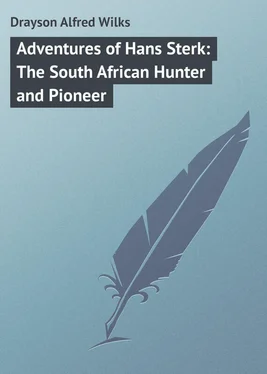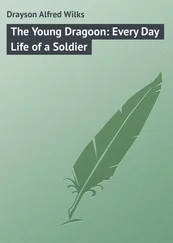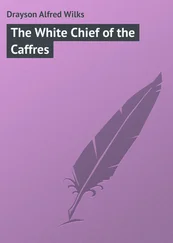Alfred Drayson - Adventures of Hans Sterk - The South African Hunter and Pioneer
Здесь есть возможность читать онлайн «Alfred Drayson - Adventures of Hans Sterk - The South African Hunter and Pioneer» — ознакомительный отрывок электронной книги совершенно бесплатно, а после прочтения отрывка купить полную версию. В некоторых случаях можно слушать аудио, скачать через торрент в формате fb2 и присутствует краткое содержание. Жанр: foreign_prose, на английском языке. Описание произведения, (предисловие) а так же отзывы посетителей доступны на портале библиотеки ЛибКат.
- Название:Adventures of Hans Sterk: The South African Hunter and Pioneer
- Автор:
- Жанр:
- Год:неизвестен
- ISBN:нет данных
- Рейтинг книги:3 / 5. Голосов: 1
-
Избранное:Добавить в избранное
- Отзывы:
-
Ваша оценка:
- 60
- 1
- 2
- 3
- 4
- 5
Adventures of Hans Sterk: The South African Hunter and Pioneer: краткое содержание, описание и аннотация
Предлагаем к чтению аннотацию, описание, краткое содержание или предисловие (зависит от того, что написал сам автор книги «Adventures of Hans Sterk: The South African Hunter and Pioneer»). Если вы не нашли необходимую информацию о книге — напишите в комментариях, мы постараемся отыскать её.
Adventures of Hans Sterk: The South African Hunter and Pioneer — читать онлайн ознакомительный отрывок
Ниже представлен текст книги, разбитый по страницам. Система сохранения места последней прочитанной страницы, позволяет с удобством читать онлайн бесплатно книгу «Adventures of Hans Sterk: The South African Hunter and Pioneer», без необходимости каждый раз заново искать на чём Вы остановились. Поставьте закладку, и сможете в любой момент перейти на страницу, на которой закончили чтение.
Интервал:
Закладка:
One very low whistle had scarcely been given by Hans before Bernhard and Victor, with Katrine and her sister, were by his side.
“Get on this horse, Katie,” said Hans, “and your sister on that next me, and we can now escape.”
“No,” said Katrine, “it will not do for us to ride. If any Matabili saw us on a horse, they would know we were prisoners escaping, but if they only saw the horses they might not suspect; but now, Hans, do you know which way to go in the dark?”
“It is difficult to find the way,” replied Hans, “for I can see but a short distance; still I can tell by those three stars close together that we are going north.”
“Yes, we are; and I think I can find the path here. We shall have to pass a kraal about half a mile farther on. What shall we do if any men come out?”
“We must tell them we are going to take the horses to the chief,” replied Hans, “that may satisfy them.”
“It may; but this is not the way to the chief’s kraal,” replied Katrine. “We shall be in danger there.”
The party moved on over the soft ground rapidly and quietly; the horses, seeming to recognise their masters, followed them without hesitation, and scarcely required to be touched by the rear follower. As they neared the kraal past which they had to walk, they heard sounds of loud talking and occasional singing, so that the slight noise of the horses’ feet they trusted would not be heard. A Matabili at all times, however, is watchful, and more particularly in time of war. Just as the three men with their charge were opposite the kraal the singing and talking suddenly ceased, and some half-dozen men came out of their huts, and called out, “Who is there?”
“Taking the horses by the chief’s orders,” replied Hans, in Matabili.
Resting his hand on Katrine’s arm, he whispered, “Not a move, Katrine, we must escape by boldness; any hurry now, and we may fail.”
Katrine was a girl who had lived amidst events which the denizen of civilisation is unacquainted with: she had witnessed many rough scenes, was accustomed to hear tales of dangers and risks, and was thus seasoned, as it were, to a life of adventures. Just as the most delicately nurtured English girl will travel by an express train without any very great fear the very day after some fearful accident may have happened on the railway by which she is a passenger, so did Katrine trust that all might turn out well in spite of the apparent dangers around. Still when she found that the approach of her party had been heard by the men of this kraal, and heard them speaking to Hans, she feared another scene of bloodshed would soon be enacted, such as that to which she had been a witness when she was first captured by the Matabili and her father slaughtered. Her trembling arm indicated to Hans her fears, but his whispered encouragement gave her strength and hope.
The moment, however, was critical, and had not Hans’ answer been confident and distinct, he might have had to fight for his life under circumstances where he could not well escape; for it would have been almost certain death to have attempted to ride at speed on a night as dark as that on which they were escaping. Fortunately the men were not curious; and most Kaffirs having a dislike to move about much at night, in consequence of snakes, centipedes, and scorpions, on which their naked feet might tread, they waited inside their kraal until the party had passed, and the sound of their footsteps was heard no more.
“We are safe so far,” whispered Hans, “thank God! Can you tell me, Katrine, where this path leads to?”
“It leads down to the stream about a mile on, and then is lost in the plain beyond. It has been used for driving the cattle to and from water, and also for hunting, there being many ‘ wilde ’ on the plain beyond.”
“If, then, we can cross the river, we may consider ourselves safe,” remarked Hans; “for we can then put you on the horses, and can ride all night. Our spoor cannot be followed by night, and twelve hours’ start ought to enable us to reach our people before we are overtaken.”
“But there are hundreds of the Matabili out on war,” said Katrine, “and we may fall in with some of them.”
“Ah! and I have lost my far-seer,” said Hans. “That is a loss. But we had better not talk; let us listen and think; we may then be less liable to a surprise.”
The party reached the stream of which Katrine had spoken, and crossed it in safety, and found before them an apparently smooth, undulating plain. After journeying over this about half an hour, the moon rose, she being some days past the full. By her light, and by the aid of the stars as guides, Hans pursued a course which led nearly in the direction of his countrymen’s settlements; but as these were distant fully three days’ journey, even riding at the best speed, and as the parry had no provisions, there seemed much to be overcome before a place of safety could be reached.
Chapter Ten.
The Prisoners are free – The Pursuit – The Horses sick – The Ride for Life – The Concealment
The morning following that on which Hans and his companions had escaped, broke with all the splendour of an African day. The dew had fallen heavily during the night, and thus the first rays of the sun produced a mist which hung like steam over the valleys; but this soon clearing away, left the atmosphere clear and transparent; so that distance could not be measured by atmosphere, as in our misty climate, but a far-off range of mountains seemed within a short ride of the observers, whereas it was distant at feast fifty miles. This clearness had a great advantage for Hans’ party, as it rendered surprise less likely than if a dense fog or cloudy weather had prevailed.
No sooner did the slightest sign of daylight appear, than Hans, by the aid of some loose powder and a piece of rag, with a flint and steel lighted a fire, and commenced preparations for a breakfast. Victor and Bernhard, like the others of the party, had merely lain down under the shelter of some bushes to obtain a few hours’ rest; but all had gone supperless to bed, if bed it could be termed. But in such a climate a night passed in the open country was not a very great hardship, even to young girls like Katrine and her sister. That very unromantic feeling, hunger, was however demanding attention; and when Victor and Bernhard, suddenly awaking at the sound of Hans’ flint and steel, started up and observed daylight beginning to dawn, and Hans making a fire, they, with an air of surprise, said —
“You have fire, Hans, but where is the food?”
“I did not like to fire a gun, lest I might disturb the country, and let some strange Matabili know we were hereabouts; so I have procured breakfast with a Matabili’s assagy.”
“What have you?” eagerly asked the hungry hunters.
“A young vleck vark and a porcupine,” replied Hans. “The porcupine I found out on the plains, and speared him before he got to his hole. The pig I saw run into a jackall’s hole, so I waited quietly over it with my assagy till it came out to peep where I had gone. I stabbed it in the neck, and held it down till I killed it with my assagy. So we shall not starve yet, Victor; and the girls can eat pork, if they object to porcupine.”
“Ah! Hans,” said Victor, “though I am an old hunter, I know I should starve in the desert where you would keep fat and sleek.”
It was a strange breakfast, that which took place on the mountain-spur, between the five white people on the morning in question. It is seldom that lovers pass through such scenes as those in which were Hans and Katrine. Artificial life is now so much more general than is natural life, that few people are aware how very false is much that surrounds them. A well-bred English lady would probably imagine that she would rather starve than make a meal off a porcupine, when no plate or fork enabled her to eat, as some would term it, “like a Christian.” It is surprising, however, how soon we learn to dispense with these ornaments of the feast, as we may term them. The writer of this tale cannot recall to mind any more enjoyable feasts, though flavoured with the best of wines and the most intellectual society, and amidst scenes of richness or splendour, than some repasts eaten amidst the dense bush of an African forest, with no other companion than the one black follower whose duty it was to spoor or carry the game, and where the cooking was simply toasting on a ramrod over the camp-fire some of the steaks from the buck which an hour previously was roaming freely in the forest. That unrivalled sauce, “hunger,” gave an additional flavour to the venison, whilst the most robust health and the purest air supplied the want of many of those addenda which are considered necessities in civilised dining-rooms.
Читать дальшеИнтервал:
Закладка:
Похожие книги на «Adventures of Hans Sterk: The South African Hunter and Pioneer»
Представляем Вашему вниманию похожие книги на «Adventures of Hans Sterk: The South African Hunter and Pioneer» списком для выбора. Мы отобрали схожую по названию и смыслу литературу в надежде предоставить читателям больше вариантов отыскать новые, интересные, ещё непрочитанные произведения.
Обсуждение, отзывы о книге «Adventures of Hans Sterk: The South African Hunter and Pioneer» и просто собственные мнения читателей. Оставьте ваши комментарии, напишите, что Вы думаете о произведении, его смысле или главных героях. Укажите что конкретно понравилось, а что нет, и почему Вы так считаете.












